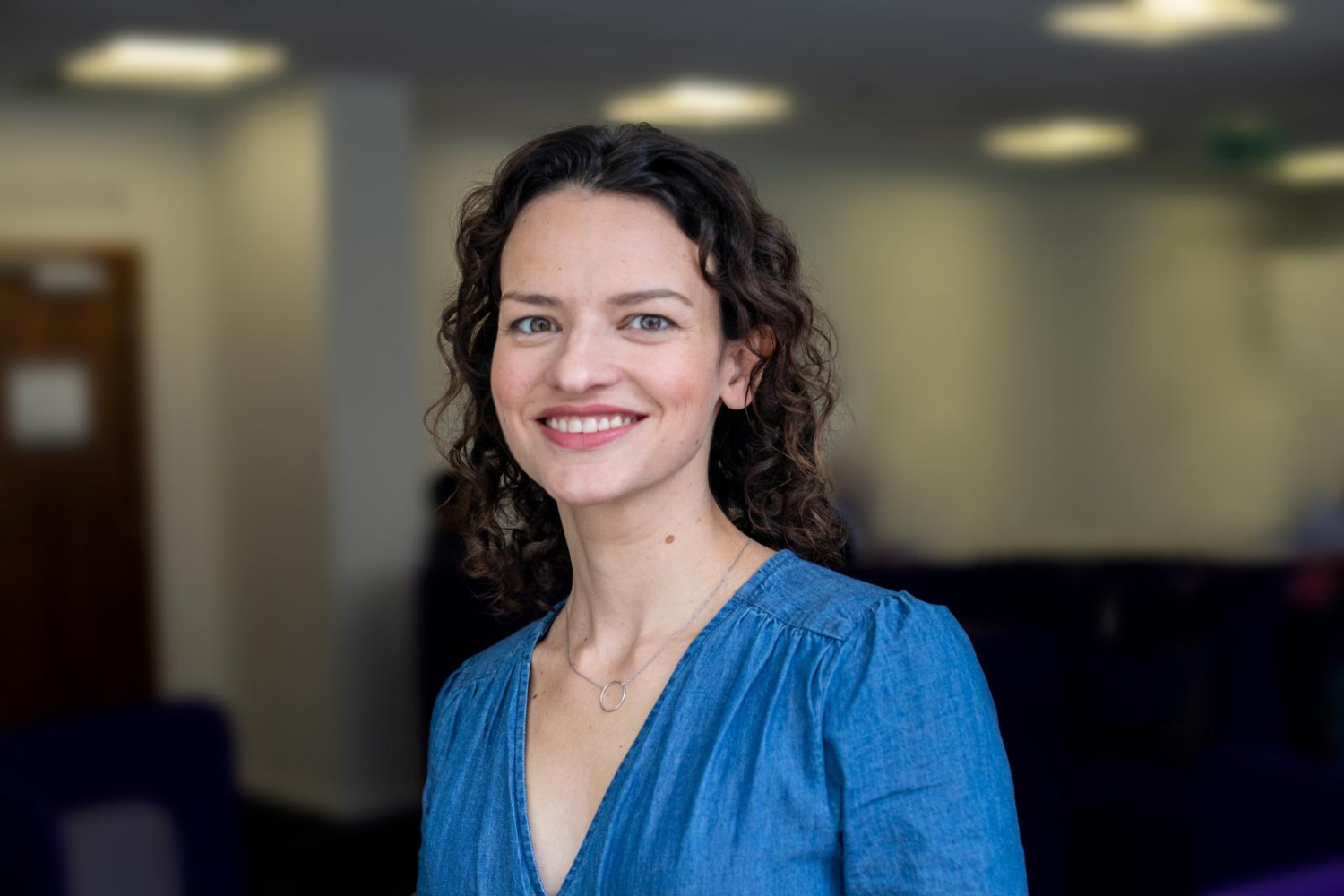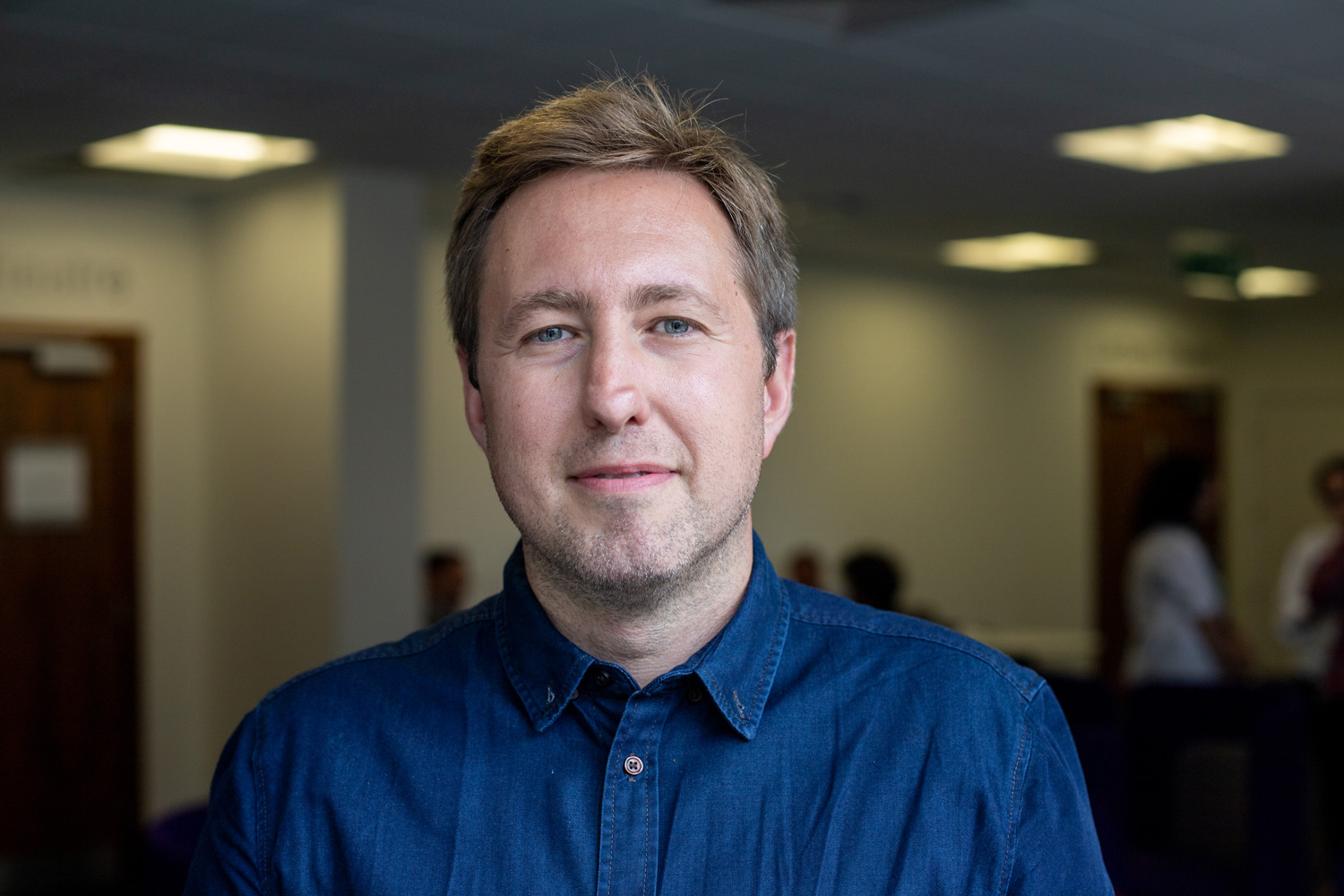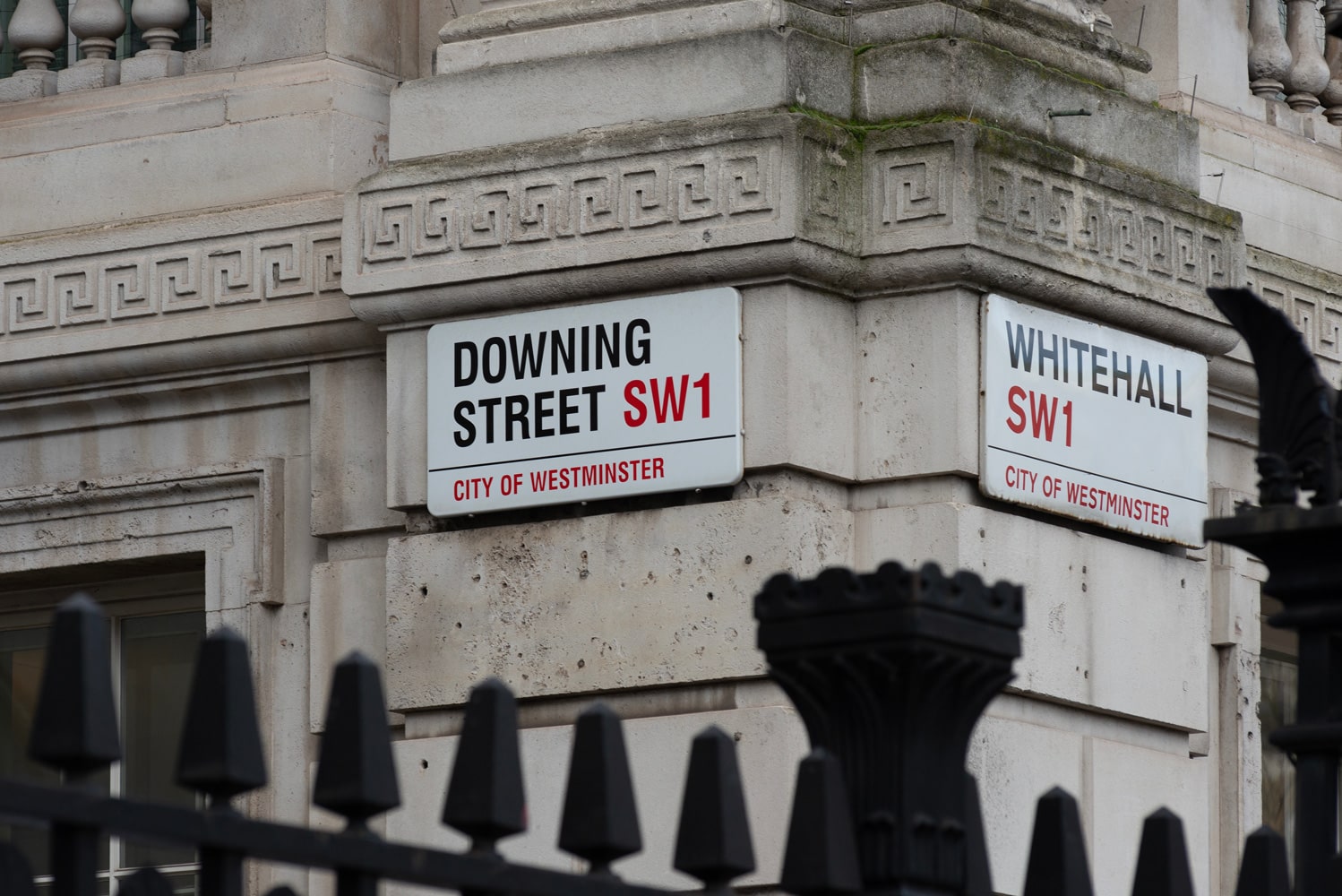It’s coming to pass
My country’s coming apart
The whole thing’s becoming
Such a bumbling farce
Was that a pivotal historical moment
We just went stumbling past?
When South London-born rapper, poet and author Kae Tempest penned the lyrics for their 2019 track ‘People’s Faces’ – out of sheer exasperation at the levels of poverty and oppression they saw in their country – the UK had not even hit rock bottom. A global pandemic and a cost-of-living crisis later and the situation has inarguably worsened.
While the merger of two universities with proud histories is the catalyst for the ‘new beginnings’ theme running through this year’s edition of The Edit, it has also been a period of significant political upheaval. Particularly so on the domestic front.
Sir Keir Starmer’s decision to shift his Labour Party towards the centre-left paid dividends at the ballot box with a comprehensive victory. However, the honeymoon period has been short-lived, as economic conditions and global political tensions create a tense start to life under Labour rule in the UK. Meanwhile, the intense media and social media scrutiny that 10 Downing Street residents have long since come to expect continues unabated.
The Edit asked two academics specialising in modern history, as well as an alumna serving as a government minister, for their respective takes on the political state of the nation. What can be done to finally emerge from the so-called “bumbling farce”? What is our current direction of travel and how does that mesh with a disillusioned and demanding public’s expectations?
Dr Lise Butler, a Senior Lecturer in Modern History within the Department of International Politics, has witnessed a level of turmoil seldom seen in British political history during her eight years at City St George’s. As a specialist in modern Britain and the history of the Labour Party, she offers insights on the current political climate.
She notes: “The Labour government was elected with a substantial majority this past summer, with 33.7 per cent of the popular vote but a 174-seat majority. However, recent polls show the Reform Party overtaking the Conservatives, and neck and neck with Labour.”
According to Lise, the Labour government has implemented some ambitious policies, including green energy projects, a national wealth fund for green infrastructure, the Renters’ Rights Bill, and the minimum wage increase. Additionally, it has approved economic development initiatives such as the Oxford-Cambridge growth corridor and a third runway at Heathrow Airport. “But these announcements have occurred against a backdrop of fiscal gloom,” she says, citing low growth in autumn 2024 and disappointing projections for this year.

Labour’s strategy has been to blame its Conservative predecessors, with former Prime Minister Liz Truss even threatening legal action against Starmer for his claims that she crashed the economy. Lise argues that while the government is justified in pointing out the previous administration’s failures, it must go beyond blame. She references a recent Institute for Public Policy Research report that suggests a successful political strategy requires challenging the ideological foundations of the previous policies. “The Chancellor’s ongoing fiscal prudence, combined with likely cuts to benefits, echoes rather than overturns the economic logic of the last government,” Lise adds.
These are still early days. “It remains to be seen whether Labour’s strategy of fiscal prudence combined with piecemeal progressive reform will register in voters’ bank accounts,” she says. “And whether the government’s moves to ramp up military spending and position Britain as a leader in Europe, in response to US President Donald Trump’s increasingly erratic foreign and economic policy, will have an enduring positive impact on public opinion.”
In the coming year, Lise believes the government must shift out of its defensive posture and offer a positive vision that provides not just growth but an economy that works for more people.
“In this moment of insurgent far-right populism, in which Britain is a rare social democratic outlier, the future of both the country and liberal democracy may depend on it,” she concludes.
Dr Georgios Giannakopoulos is a Lecturer in Modern History at City St George’s as well as Associate Dean for Employability, Engagement and Enterprise. He also teaches international history and politics at LSE and at the London campuses of New York University and Fordham University. His research specialisms include the history and politics of Britain.
He believes the recent election offers an opportunity to restore public trust in democratic governance and address pressing structural challenges around inequality, regional disparities, and the future of the UK’s place in the world.
“I hope to see a commitment to long-term policy planning rather than short-term crisis management,” he says, “particularly in areas such as public services, climate policy, and economic reform. A forward-looking government should also acknowledge the complexities of international politics and recalibrate the UK’s global role in a way that is both pragmatic and principled.”
Georgios feels there is a strong desire for stability, competence, and transparency in government. “Years of political turbulence – economic uncertainty, shifting foreign policy orientations, and internal divisions – have left many people disillusioned, he says. “The public wants concrete improvements in the cost of living, healthcare, housing, and education, rather than rhetorical commitments.”

There is also an expectation for a more responsive and less adversarial political culture – one that fosters serious debate on structural issues rather than quick fixes or ideological battles. Short-term political point-scoring often takes precedence over serious, long-term policymaking. “Labour has the opportunity to enact institutional reforms and foster closer engagement between politicians and civil society actors,” says Georgios.
For the Conservatives, Georgios says embracing a more constructive political culture could be a way to regain credibility after years of turbulence. “A key challenge for the Conservatives is that they need to balance appealing to their base while broadening their appeal to disillusioned voters.”
In an era when misinformation and polarisation shape public discourse, Georgios emphasises that universities have a responsibility to provide rigorous, accessible analysis of political and economic developments. “Universities should act as both a critical voice and a bridge between expertise and policy. They can also serve as platforms for engagement, fostering dialogue between policymakers, students, and the broader public,” he says.
“Furthermore, universities must rethink their role in civic life – strengthening partnerships with local communities, expanding public education initiatives, and ensuring that research has a tangible impact on the major challenges facing the country.”
Sarah Sackman KC MP is the Labour Member of Parliament for Finchley and Golders Green, as well as Minister of State for Courts and Legal Services. An alumna of The City Law School, her memories of her time as a student include “making brilliant friends, unforgettable lectures from David Herling and John Hopkins, and enjoying Exmouth Market drinks after a long day at the library”. Sarah studied for the Graduate Diploma in Law, before later returning to teach Public Law to undergraduates.
When campaigning in Finchley and Golders Green, Sarah was struck by the number of people – from all walks of life – switching their vote to Labour for the first time. “My constituents and people across the country voted for change and now it is up to us to deliver,” she says.
“Britain has a huge amount going for it, but 14 years of mismanagement have left our economy flatlining and our public services in the worst state in a generation. The new government is seizing the agenda with economic reform, to ensure that by the end of this Parliamentary term, people across the UK are better off and have a welfare state that is there for them when they need it.”
She describes her constituency as being one of the most diverse places in the UK – ethnically, socio-economically and culturally. But where some seek to divide, Sarah has seen first-hand how well different communities can live side by side, enriched by their diversity. After the far-right riots in the summer, the issue of community cohesion was brought to the fore. She hopes that, over the next four years, she and her party can start to rebuild the ties that hold communities together and work “to ensure that hope triumphs over hate”.
Before she was elected to Parliament, Sarah was a barrister specialising in housing and environmental law. She is fully aware that, for so many people, not least students, the lack of affordable housing has reached a crisis point.
Sarah believes that turning the tide on the housing crisis is central to the changes that the public want to see. “Everyone deserves a place to call home,” she says, “but spiralling rental costs are pushing home ownership further and further out of reach while sub-standard accommodation becomes unacceptably common. This government, which I am so proud to serve in, is taking bold action to reform our planning system, to make it easier to build houses. I know too that the Renters’ Rights Bill, when it passes into law, will make a real difference for millions of renters across the UK – ending no-fault evictions, banning bidding wars and restricting rent increases.”
Urgent action on climate was, in Sarah’s view, a key reason why people voted for change. “Across the country, the horrifying sight of raw sewage being dumped into rivers, lakes and beaches showed how broken our environmental regulations had become. I am so pleased that the government has begun to tackle this head on, with tough penalties for water bosses who break environmental law, new powers to ban bonuses for rogue water company executives, severe fines for polluting our waterways and greater investment.”
After years of failure on the environment, Sarah is convinced that people across the country will be pleased with the progress being made.
In terms of universities contributing towards that progress, Sarah understands the role they play and the importance of nurturing them. “I loved my time at university, both at The City Law School, and studying for my undergraduate degree at Cambridge,” she says.
“In the UK, we have some of the best universities in the world and we should be proud of them. I know that the higher education sector has come under significant strain over the past decade, with institutions not getting the funding they need and students – especially from disadvantaged backgrounds – losing the support they once had.
“The Education Secretary has acted quickly to stabilise finances in the Higher Education sector, which is vital to ensuring their longevity into the future.”
A light at the end of the tunnel
It is often levelled at academia that it is out of touch; that it does not engage with society in ways that have impact beyond higher education. The Finsbury Institute is a new, outward-facing hub for policy research and practice, based in City St George’s School of Policy & Global Affairs, and located in the heart of the City of London in Finsbury Square. The Institute signifies a crucial step forward in City St George’s commitment to translating scholarly research into tangible solutions for real-world challenges.
Might this new hub for political discussion help universities make a more meaningful impact on British public life and showcase the value of research, at a time when experts are often overlooked in favour of the noisiest or most heavily backed?
The Institute will offer a space for academics to collaborate with professionals and external institutions – to think, debate, and find new ways forward. With a focus on originality and innovation, it will serve as a place for fostering dialogue, driving external engagement, and making a tangible impact on society.
Under the stewardship of its inaugural Director, Dr Diana Beech – previously Chief Executive of London Higher – the centre’s goal is to question the status quo, understand the power behind knowledge, and explore how we can think and act differently in an increasingly complex world.
Writing in Times Higher Education earlier this year, Diana, who will become Professor of Policy and Government Affairs when she takes up her post in April 2025, laid out her aims for the Institute: “Despite being key to powering the nation’s economy, as well as influencing regulation for major UK industries, the businesses and professional bodies in the City of London’s Square Mile do not currently have productive partnerships with the university sector,” she wrote. “Consequently – and despite their global reach and vast economic heft – they lack the means of tapping into valuable academic expertise.”
“I am both honoured and energised to take on the task of addressing this gap, harnessing the work of academics from City St George’s and their partners, convening the City’s own thought leaders, and transforming it into practical advice that will make a positive difference to communities locally, nationally and across the globe.”
Maybe, by leveraging its enviable location nestled among the powerful and influential, and by engaging those bodies in dialogue with those at the forefront of research, the Finsbury Institute can make a real contribution to British political life?
That really would be a pivotal moment worth celebrating.
In the interests of balance, a Conversative MP alumni of City St George’s was also invited to take part in this article but they did not respond.
